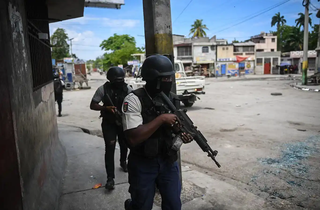"The escalating violence has had a catastrophic humanitarian impact," said Philippe Branchat, head of the IOM in Haiti. "Since February, more than 578,000 people have been internally displaced, a 60% increase from earlier this year."
This number represents a significant portion of Haiti's population of 11.9 million.
The violence began in late February as armed gangs launched coordinated attacks on the capital, Port-au-Prince, targeting the national palace, hospitals, police stations, and residential neighborhoods. This prompted a mass exodus to neighboring provinces as residents sought safety.
"Gangs currently control about 80% of the capital," the report states.
The living conditions for displaced Haitians are dire. In Port-au-Prince, two-thirds of internally displaced people (IDPs) reside in makeshift settlements with limited access to basic necessities. There are currently 96 such displacement sites across the country, housing over 61,000 people.
The political situation in Haiti remains unstable. Prime Minister Ariel Henry resigned in April, and a transitional council now leads the country. A planned deployment of Kenyan security forces to assist Haitian police has been repeatedly delayed. (ILKHA)



 Güncel
Güncel
 Güncel
Güncel
 Dünya
Dünya
 Güncel
Güncel
 Güncel
Güncel
 Güncel
Güncel
 Dünya
Dünya
 Dünya
Dünya
 Dünya
Dünya
 Güncel
Güncel





